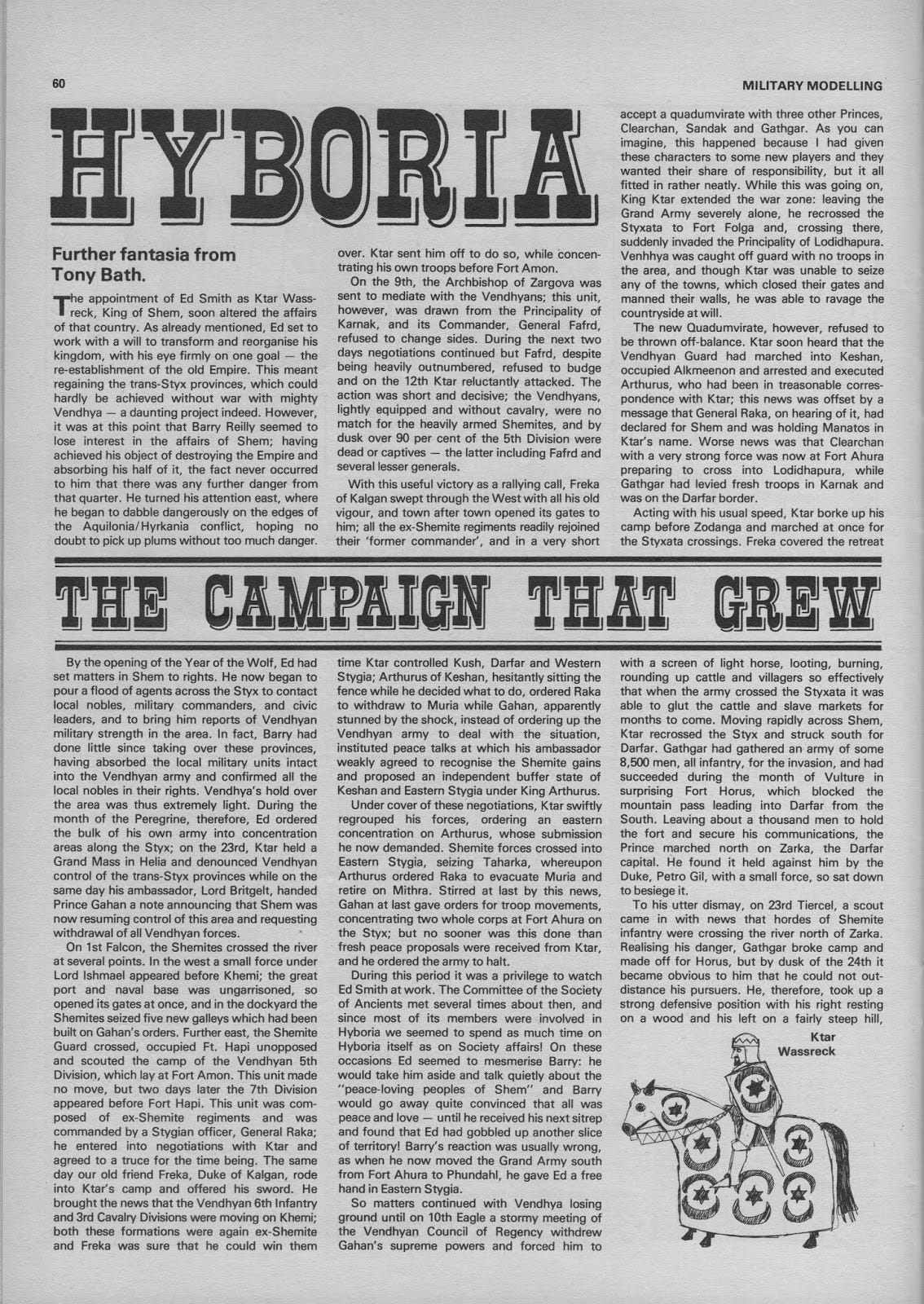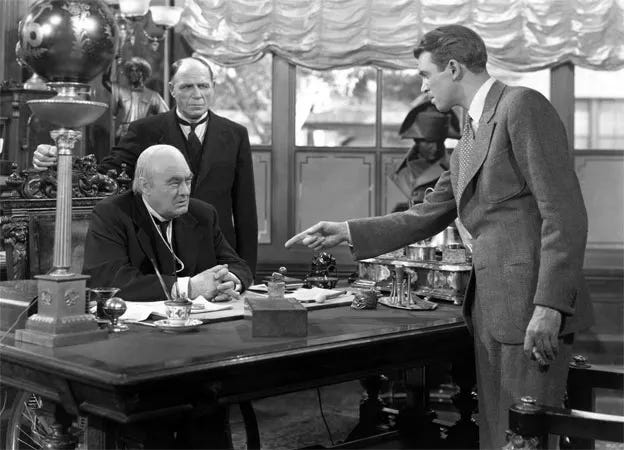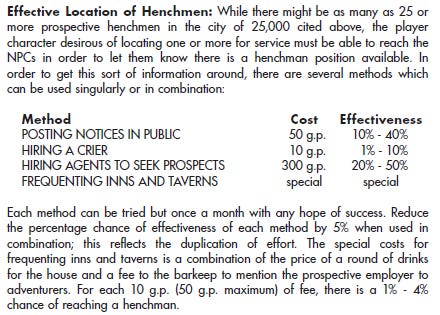
Some of you may be aware, but I’ve been dedicating large amounts of my free time in my real life to the formation of a Wargames and TTRPG Social Club - IRL and local to me. I have been inspired by Bradford C. Walker’s series of articles on why the games club is a real path forward for enthusiastic hobbyists - as well as regular discourse among my mutuals as they happen. Establishing a local club of my own is almost all I think about and work toward these days. This is not to say that I am not a responsible husband to my wife or have neglected my professional obligations, but marks a clear shift away from the idle, isolated leisure of video games or base consumption and toward establishing a cultural node in the community that I call home.
Who Has Time For Clubs Anymore?
We’ve all seen it. Many of us have watched impotently as our home campaigns devolve into a plurality of players backing out of the regular game night due to “being busy”. It’s happened to me before and likely will happen to me again. I’ve approached some of my friends to gauge their reaction to something like the “Wargames RPG Club” I envision and the responses have been mixed: some immediately latch on to the idea, while others say it isn’t realistic to set expectations like that. In both cases, neither will ultimately join. Both people cite the same reason: “Oh I can’t do it, I’m too busy.”
I reject these rejections, of course.
On my bookshelf I keep my grandfather’s bowling league trophies. My grandfather was a serious man: a Michigan Irish-Catholic Marine Corp veteran of Korea, a Police Officer in the 60s through the 80s, a husband of one wife and father to six children - which he had until the day he passed away. I keep his league trophies on the shelf specifically to be in my view whenever I need a reminder that “too busy” is an indicator of how a man manages his life and that we should always make time for the things we care about. My grandfather managed to maintain his hobby until he retired and moved south, where he picked up new hobbies. He had every excuse, but I never once heard him back out of anything consistently because he was eternally too busy.
I believe that people back then didn’t really have to understand their obligations so much, everyone sort of went through the motions and it was good enough; social forces propelled them in more-or-less the correct direction. Grandpa knew what his duties were to my grandmother and fulfilled them and I think he did a good enough job of instructing my father so that when it came time for me to learn what was required of me I would know what to do for my own wife. I’ve found that many of my friends have not been so lucky. They got married, some had children, and several slowly pulled back not just from games, but from friendship as a whole. When I invited them out, even if only for a meal, they would claim that they were “too busy”.
At first, I wondered if maybe these people didn’t want my friendship anymore. I didn’t like the idea, but I wouldn’t be particularly insulted - people grow apart after all. I would check up on them through acquaintances or social media and find that, no it wasn’t just me, they weren’t around anyone. I continued to invite them out places on occasion, I didn’t want them to think they’d been forgotten…though the answer was usually the same: “Sorry man, I’m too busy”. Generally, I found that fear of setting that boundary with their wives is what drove them to cancel and I think my read of their situations was correct given what would would come next.
I’ve come to realize that this behavior was a signal that something was rotten in the state of Denmark. Those friends have been calling me recently, informing me that their wife was leaving them. Some had kids, some didn’t. In fact, my longtime game fell apart due to this; as the marriages deteriorated, my friends pulled back - of my 6 players, 3 would divorce almost at the same time subsequent. I’m glad I kept in touch with them, maybe even to their annoyance at the time, because when the chips were down they realized they felt alienated from everyone except for me. This is not to gloat about how great a friend I am, but to communicate something I absolutely do NOT regret…though it probably doesn’t make much sense within the context of this article, but bear with me I’m getting there.
Social Fabric and the Club
I bring up my part only to say that when they called me, I was relieved that my choice to doggedly remain in touch until told otherwise was the correct one. They each admitted that they didn’t know who to contact because they hadn’t spoken to anyone else in over a year at least. I had been hearing the growing discourse regarding club activity for some time, but didn’t think too much on it until this point. I realized that these men were totally isolated if not for a quirk of us coming together and that things could have gotten far more bleak. I was resolved then to try and do whatever I could to help fight that kind of isolation and that it could be so much more effective as a legitimate organization.
Another thing happened that has pushed me to stay my course toward the Club: I got a new job. I haven’t really hidden the ball on this, but I work in finance - though I would say that before 2025 I did community finance, but as of 2025 I graduated into High Finance. Like if George Bailey found himself in the Wolf of Wall Street.
I’m being a bit flippant in my description, but it’s true that the clientele I work with now are of a different social strata than what I had originally gotten into my field with. I won’t bore the reader with the details of my job, but I will disclose that I learned something extremely interesting about the elite: they are all part of functioning IRL Social Clubs.
The Upper Middle Class doesn’t seem to participate in such things, only the extremely successful tip top of the social hierarchy. This begs a question from me: are they in clubs because they’re successful? Or are they successful because they are in clubs? Based on the origins of these clubs, I have to believe it’s the latter. Highly prestigious organizations all began as a group of men, meeting in their favorite restaurant to discuss particular interests. This appears to have largely fallen away from everyone else, but is alive and well among the upper strata of society. As such, these groups are incredibly well-insulated from pain; they are able to rally around their members and mitigate all but the worst catastrophes.
The Club Has the Best Insurance Policy
Even in its nascent stage, my efforts have been rewarded with people from all walks of life. I’ve worked to lash together serious professionals with the Campaign as the pursuit that they all have in common. My players are representatives of various industries: finance, electrical, health, engineering, and more. We’ve found that we’re well-positioned to render aid to fellow members, and have done so when life throws its curveballs.
Of those friends I mentioned earlier, one was in a position where his now ex-wife could end his career since they worked for the same organization. He was able to contact another player, someone he would not have known if not for the game, and have a potential job lined up at a moment’s notice. Thankfully it didn’t come to that, but how heartening it must have been to know that he could weather that storm, he couldn’t be humiliated…and that made him powerful.
There is still work to be done though - finding people is only the first step; it’s probably the most important step, but it’s still just the first one.
It is also the hardest one; the initial members need to be a group of people who are absolutely dedicated to the club mission, in this case: playing the best possible game, and will work to make that mission a reality. By its nature, the Founding Members need to be people who have a handle on their personal, professional, and familial lives. I’m very sorry to say, but this isn’t everyone…
Mission Impossible: Recruitment
Actually the mission is not impossible, but it does require that the organizer (in this case: me) be prepared to weather agonizing games and social situations. After the aforementioned players dropped out and I realized that I wanted to make my club a reality, I found myself with a puzzle: how do I get new members when my close friends were constitutionally unable to manage it? I would have preferred to rely on people I knew were good, but it just wasn’t to be for the time being.
I reached out to other friends, acquaintances, really anyone I thought might be interested in getting a game together and asked if they’d be interested in participating in a Campaign that I’d be running. Some said no, some said yes. The yes’s pulled together players from their social circle and I prepared for some rough sessions. I don’t want to put too fine a point on it: the people who participated were lovely and good, but the game I was running, at the level I wanted to run it, was not for them. These groups were rife with frustration and disinterest, but within each were small embers of the kind of player I was looking for.
Of the groups (6 or more people) I ran these pickup games for, I usually only found 1 or 2 individuals who were interested in the game in a way that told me that they might love it like I do. Maybe the reader has heard a historically popular refrain on the internet: “No D&D is better than Bad D&D” - an accurate statement on most occasions, but sometimes you have to suffer Bad D&D to draw out someone’s love for the game. When I found those people, frustrated by their fellows who simply weren’t interested in numbers or dice, I offered them a seat a special VIP Campaign; it would only be for people that were absolutely interested in pursuing the best game possible.
My instincts were good for each of my invites: selected for their temperment, interest in the text of the rules, willingness to place themselves in their role, and overall ability to get on with strangers. The VIP game is some of the best gaming I’ve experienced in my time as a dedicated Dungeon Master - I’m talking multiple floors cleared in single night, treasure secured and accurately accounted, up to a dozen combat encounters adjudicated with machine precision, everyone involved is 100% on board with mission of the game and fast friends have been made.
The Club Going Forward
I intend to continue to build my foundation. I want at least 10 dedicated members and 1 more DM before I move to the next stage: filing with my state and establishing the club legally. I will continue to build out my groups and dedicate my time to becoming the best possible DM of my game - to this end I’ve taken up solo-gaming to better grasp the rules and have 1 to 2 days per week toward gaming with other people.
Hopefully a dedicated group of men with a handle on their family obligations and who are not overcome by fear of their wives will be able to provide each other the advice and support that not only positively affect their professional lives, but help them maintain their families as well. I do not believe my scope is too ambitious; surely the WWII veterans of the British Model Soldier Society or the Society of Ancients listened to one another complain about their home life or offer solid advice to help manage a bad situation?
Sometimes we just can’t do it alone.








I wish you good fortune in this important venture, John.
I’m going to read it again so it sinks in. Very valuable stuff here